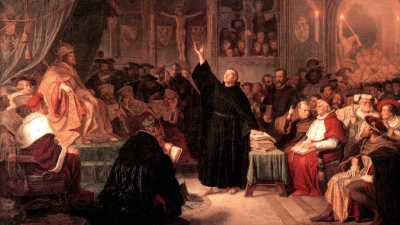
In 2017 the world marked the 500th anniversary of the Protestant Reformation, an event that tradition tells us began on October 31, 1517 when the priest Martin Luther posted his ninety-five these on the door of the Castle Church in Wittenberg, Germany. His radical views sparked the Protestant Reformation, a watershed event in Western history that has bequeathed to the world a variety of concepts that are relevant even today.
The 95 Theses, which would later become the foundation of the Protestant Reformation, were written in a remarkably humble and academic tone, questioning rather than accusing. The overall thrust of the document was nonetheless quite provocative. The first two of the theses contained Luther’s central idea, that God intended believers to seek repentance and that faith alone, and not deeds, would lead to salvation. The other 93 theses, a number of them directly criticizing the practice of indulgences, supported these first two.
Luther is remembered as a controversial figure, not only because his writings led to significant religious reform and division, but also because in later life he took on radical positions on other questions, including his pronouncements against Jews, which some have said may have portended German anti-Semitism; others dismiss them as just one man’s vitriol that did not gain a following. Some of Luther’s most significant contributions to theological history, however, such as his insistence that as the sole source of religious authority the Bible be translated and made available to everyone, were truly revolutionary in his day.
Picture Credit : Google

